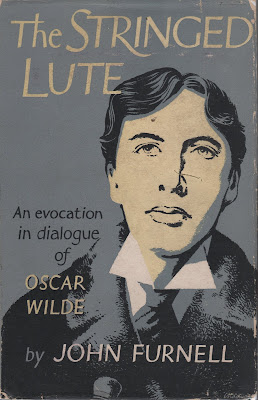 |
| London : Rider and Company, 1955 |
The Stringed Lute is a play within a play as it begins and ends with the author in his apartment in the former home of Oscar Wilde. Furnell makes use of Wilde's own writings to create an authenticity to the dialogue. The first part focusing on the relationship with Lord Alfred draws most heavily from The Picture of Dorian Gray. The final part, taking place after his release from prison, draws most heavily from De Profundis.
The action of the play truly humanizes Wilde and presents him as a martyr of sorts; a Christ-like figure willing to be sacrificed for the cause. Furnell only alludes to the trials and the time in prison is skipped in its entirety. The effects of the imprisonment, however are seen in the subsequent years in France and briefly in Naples with Lord Alfred. Wilde died in poverty in Paris in 1900 surrounded by friends who had supported him through everything.
The Stringed Lute as well as The Trials of Oscar Wilde by H. Montgomery Hyde formed the basis of the 1960 movie. While Hyde's text fills in the details of the trials, unfortunately much of what makes The Stringed Lute so appealing doesn't appear in the film.
Bibliographies & Ratings: Cory (IV); Garde (P, 138 **); Mattachine Review (IV); Young (1345 *)
No comments:
Post a Comment